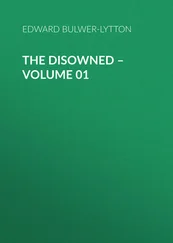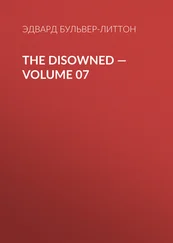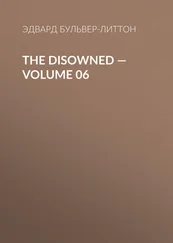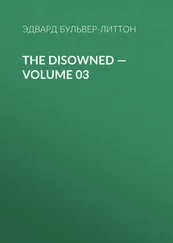Эдвард Бульвер-Литтон - The Disowned — Complete
Здесь есть возможность читать онлайн «Эдвард Бульвер-Литтон - The Disowned — Complete» — ознакомительный отрывок электронной книги совершенно бесплатно, а после прочтения отрывка купить полную версию. В некоторых случаях можно слушать аудио, скачать через торрент в формате fb2 и присутствует краткое содержание. Жанр: foreign_prose, literature_19, Европейская старинная литература, foreign_antique, на английском языке. Описание произведения, (предисловие) а так же отзывы посетителей доступны на портале библиотеки ЛибКат.
- Название:The Disowned — Complete
- Автор:
- Жанр:
- Год:неизвестен
- ISBN:нет данных
- Рейтинг книги:5 / 5. Голосов: 1
-
Избранное:Добавить в избранное
- Отзывы:
-
Ваша оценка:
- 100
- 1
- 2
- 3
- 4
- 5
The Disowned — Complete: краткое содержание, описание и аннотация
Предлагаем к чтению аннотацию, описание, краткое содержание или предисловие (зависит от того, что написал сам автор книги «The Disowned — Complete»). Если вы не нашли необходимую информацию о книге — напишите в комментариях, мы постараемся отыскать её.
The Disowned — Complete — читать онлайн ознакомительный отрывок
Ниже представлен текст книги, разбитый по страницам. Система сохранения места последней прочитанной страницы, позволяет с удобством читать онлайн бесплатно книгу «The Disowned — Complete», без необходимости каждый раз заново искать на чём Вы остановились. Поставьте закладку, и сможете в любой момент перейти на страницу, на которой закончили чтение.
Интервал:
Закладка:
His own hair, quite white, was carefully and artificially curled, and gave a Grecian cast to features whose original delicacy, and exact though small proportions, not even age could destroy. His eyes were large, black, and sparkled with almost youthful vivacity; and his mouth, which was the best feature he possessed, developed teeth white and even as rows of ivory. Though small and somewhat too slender in the proportions of his figure, nothing could exceed the ease and the grace of his motions and air; and his dress, though singularly rich in its materials, eccentric in its fashion, and from its evident study, unseemly to his years, served nevertheless to render rather venerable than ridiculous a mien which could almost have carried off any absurdity, and which the fashion of the garb peculiarly became. The tout ensemble was certainly that of a man who was still vain of his exterior, and conscious of its effect; and it was as certainly impossible to converse with Mr. Talbot for five minutes without merging every less respectful impression in the magical fascination of his manner.
“I thank you, Mr. Linden,” said Talbot, rising, “for your accepting so readily an old man’s invitation. If I have felt pleasure in discovering that we were to be neighbours, you may judge what that pleasure is to-day at finding you my visitor.”
Clarence, who, to do him justice, was always ready at returning a fine speech, replied in a similar strain, and the conversation flowed on agreeably enough. There was more than a moderate collection of books in the room, and this circumstance led Clarence to allude to literary subjects; these Mr. Talbot took up with avidity, and touched with a light but graceful criticism upon many of the then modern and some of the older writers. He seemed delighted to find himself understood and appreciated by Clarence, and every moment of Linden’s visit served to ripen their acquaintance into intimacy. At length they talked upon Copperas Bower and its inmates.
“You will find your host and hostess,” said the gentleman, “certainly of a different order from the persons with whom it is easy to see you have associated; but, at your happy age, a year or two may be very well thrown away upon observing the manners and customs of those whom, in later life, you may often be called upon to conciliate or perhaps to control. That man will never be a perfect gentleman who lives only with gentlemen. To be a man of the world, we must view that world in every grade and in every perspective. In short, the most practical art of wisdom is that which extracts from things the very quality they least appear to possess; and the actor in the world, like the actor on the stage, should find ‘a basket-hilted sword very convenient to carry milk in.’ [See the witty inventory of a player’s goods in the “Tatler.”] As for me, I have survived my relations and friends. I cannot keep late hours, nor adhere to the unhealthy customs of good society; nor do I think that, to a man of my age and habits, any remuneration would adequately repay the sacrifice of health or comfort. I am, therefore, well content to sink into a hermitage in an obscure corner of this great town, and only occasionally to revive my ‘past remembrances of higher state,’ by admitting a few old acquaintances to drink my bachelor’s tea and talk over the news of the day. Hence, you see, Mr. Linden, I pick up two or three novel anecdotes of state and scandal, and maintain my importance at Copperas Bower by retailing them second-hand. Now that you are one of the inmates of that abode, I shall be more frequently its guest. By the by, I will let you into a secret: know that I am somewhat a lover of the marvellous, and like to indulge a little embellishing exaggeration in any place where there is no chance of finding me out. Mind, therefore, my dear Mr. Linden, that you take no ungenerous advantage of this confession; but suffer me, now and then, to tell my stories my own way, even when you think truth would require me to tell them in another.”
“Certainly,” said Clarence, laughing; “let us make an agreement: you shall tell your stories as you please, if you will grant me the same liberty in paying my compliments; and if I laugh aloud at the stories, you shall promise me not to laugh aloud at the compliments.”
“It is a bond,” said Talbot; “and a very fit exchange of service it is. It will be a problem in human nature to see who has the best of it: you shall pay your court by flattering the people present, and I mine by abusing those absent. Now, in spite of your youth and curling locks, I will wager that I succeed the best; for in vanity there is so great a mixture of envy that no compliment is like a judicious abuse: to enchant your acquaintance, ridicule his friends.”
“Ah, sir,” said Clarence, “this opinion of yours is, I trust, a little in the French school, where brilliancy is more studied than truth, and where an ill opinion of our species always has the merit of passing for profound.”
Talbot smiled, and shook his head. “My dear young friend,” said he, “it is quite right that you, who are coming into the world, should think well of it; and it is also quite right that I, who am going out of it, should console myself by trying to despise it. However, let me tell you, my young friend, that he whose opinion of mankind is not too elevated will always be the most benevolent, because the most indulgent, to those errors incidental to human imperfection: to place our nature in too flattering a view is only to court disappointment, and end in misanthropy. The man who sets out with expecting to find all his fellow-creatures heroes of virtue will conclude by condemning them as monsters of vice; and, on the contrary, the least exacting judge of actions will be the most lenient. If God, in His own perfection, did not see so many frailties in us, think you He would be so gracious to our virtues?”
“And yet,” said Clarence, “we remark every day examples of the highest excellence.”
“Yes,” replied Talbot, “of the highest but not of the most constant excellence. He knows very little of the human heart who imagines we cannot do a good action; but, alas! he knows still less of it who supposes we can be always doing good actions. In exactly the same ratio we see every day the greatest crimes are committed; but we find no wretch so depraved as to be always committing crimes. Man cannot be perfect even in guilt.”
In this manner Talbot and his young visitor conversed, till Clarence, after a stay of unwarrantable length, rose to depart.
“Well,” said Talbot, “if we now rightly understand each other, we shall be the best friends in the world. As we shall expect great things from each other sometimes, we will have no scruple in exacting a heroic sacrifice every now and then; for instance, I will ask you to punish yourself by an occasional tete-a-tete with an ancient gentleman; and, as we can also by the same reasoning pardon great faults in each other, if they are not often committed, so I will forgive you, with all my heart, whenever you refuse my invitations, if you do not refuse them often. And now farewell till we meet again.”
It seemed singular and almost unnatural to Linden that a man like Talbot, of birth, fortune, and great fastidiousness of taste and temper, should have formed any sort of acquaintance, however slight and distant, with the facetious stock-jobber and his wife; but the fact is easily explained by a reference to the vanity which we shall see hereafter made the ruling passion of Talbot’s nature. This vanity, which branching forth into a thousand eccentricities, displayed itself in the singularity of his dress, the studied yet graceful warmth of his manner, his attention to the minutiae of life, his desire, craving and insatiate, to receive from every one, however insignificant, his obolus of admiration,—this vanity, once flattered by the obsequious homage it obtained from the wonder and reverence of the Copperases, reconciled his taste to the disgust it so frequently and necessarily conceived; and, having in great measure resigned his former acquaintance and wholly outlived his friends, he was contented to purchase the applause which had become to him a necessary of life at the humble market more immediately at his command.
Читать дальшеИнтервал:
Закладка:
Похожие книги на «The Disowned — Complete»
Представляем Вашему вниманию похожие книги на «The Disowned — Complete» списком для выбора. Мы отобрали схожую по названию и смыслу литературу в надежде предоставить читателям больше вариантов отыскать новые, интересные, ещё непрочитанные произведения.
Обсуждение, отзывы о книге «The Disowned — Complete» и просто собственные мнения читателей. Оставьте ваши комментарии, напишите, что Вы думаете о произведении, его смысле или главных героях. Укажите что конкретно понравилось, а что нет, и почему Вы так считаете.












